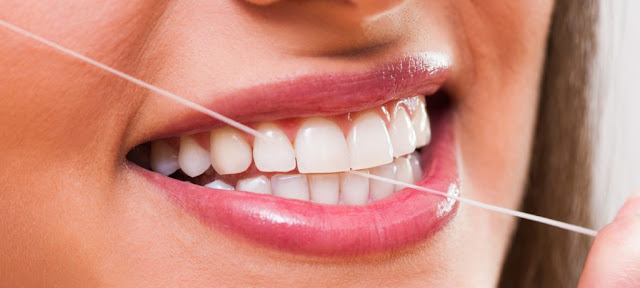We arrived Thursday at 3:30 am at our little cinderblock home in Tonga to provide 3 months of dental service.
Our first day in clinic we saw some students from the local LDS (Liahona) high school as well as some general community members. They were friendly, happy and appreciative.
Dental health is dismal here. Having teeth pulled is so normal that billboards feature Tongans with missing teeth and patients don’t even express disappointment when told a tooth has to be removed. We worked on a young lady yesterday missing almost half of her permanent teeth.
So of course you are going to get a weekly challenge featuring oral care.
My husband is famous for saying “Only brush the teeth you want to keep” and “if you have to choose between brushing and flossing- floss”
Flossing affects the health of our teeth, but also our overall health and well-being. Yet it’s common to lie to the dentist about how often we floss and to have it on our to-do list but rarely get around to it. Here are some reasons to make flossing part of your DAILY health care.
1. Incorporate Flossing into Your Daily Routine
If you’re not in the habit of flossing, starting can seem challenging. However, it’s a simple routine that, once adopted, takes only a few minutes out of your day. We recommend flossing at least every 24 hours preferably before bedtime, to ensure that no food particles remain trapped between your teeth overnight.
2. Enhance Your Oral Health
While brushing your teeth is fantastic, there are areas it doesn’t effectively clean. When you use floss, it acts as a companion to your toothbrush, accessing the tight spaces between teeth. When you floss, you’re making your oral care doubly effective, ensuring that every nook and cranny of your mouth gets the attention it deserves.
3. Enhance The Appearance of Your Teeth
While flossing directly removes food particles and reduces bad breath, it also contributes to a brighter smile over time. By removing plaque, you prevent tartar buildup, which can discolor the area where the tooth meets the gum.
Stains can also develop over time between the teeth, especially for individuals who consume cola, coffee, tea, red wine, or tobacco. Flossing can significantly reduce the buildup of staining agents in these tight spaces. Over time, diligent flossers may notice their teeth feel cleaner and appear brighter and less stained.
4. Flossing affects your breath
Between your teeth are spaces where tiny particles of food can become trapped. If left undisturbed for more than 24 hours these particles start to decay and form plaque, a sticky layer of bacteria. These bacteria produce sulfur compounds as they digest food particles, leading to that unwanted odor. Flossing every 24 hours disturbs this bacterial activity, directly preventing bad breath.
5. Flossing Leads to a Healthy Heart
One of the lesser-known benefits of using floss is its positive impact on heart health. Research suggests that the bacteria causing inflammation in the gums can enter the bloodstream and lead to atherosclerosis, a condition where the arteries get clogged. Atherosclerosis can further lead to heart diseases. By using floss regularly, you’re taking care of your dental health and even making a proactive choice for your heart.
6. Boost Your Immune System
The mouth is one of the primary gateways to the body for harmful bacteria and germs. By using floss daily, you decrease the load on your immune system since it doesn’t have to continually fight off bacteria from the gums and teeth. In essence, by ensuring a clean mouth, you’re freeing up your immune system to deal with other potential threats, thus enhancing your overall health.
7. Reduce the Risk of Respiratory Diseases
There’s a connection between oral health and respiratory diseases. Bacteria in the mouth can travel to the lungs and cause infections or exasperate existing lung conditions. By maintaining a clean mouth through this at-home dental practice, the chances of these bacteria traveling to the lungs are reduced significantly.
8. Diabetics be extra careful
People with diabetes are more susceptible to gum disease. Brushing and using dental floss regularly is your best strategy to maintaining gum health and is extra important for diabetics.
9. Makes sense financially
Think of this hygienic practice as an investment. The few minutes you spend on using flossing before bed can save you considerable amounts in dental bills in the future. Besides, dental ailments can often lead to other health complications. This practice enables you to prevent these dental issues and potentially save on future medical bills.
10. Flossing Reinforces Good Habits for Your Family
When children observe adults in the household using dental floss regularly, it instills the importance of this habit in them. By making it a family activity, parents can ensure that their children grow up understanding the importance of comprehensive oral care, setting them on a path to prioritize their dental health.
This is an easy weekly challenge but one I hope you will continue for the rest of your life. For every day that you brush thoroughly twice daily and floss your teeth you can claim the daily bonus points. And I won’t require if for the points but if it has been more than 6 months since you visited your dentist I encourage you to make an appointment.




